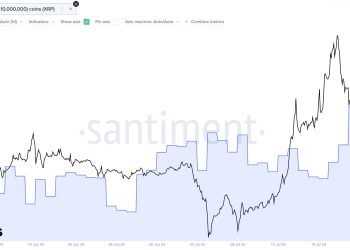Russia Has No Plans to Ban Cryptocurrencies Unlike China, says Deputy Finance Minister
A Siberian region, which relies heavily on hydroelectric power and is known for its cheap electricity, also saw its energy consumption surging 159% due to an “avalanche” of crypto-mining.
After the US Federal Reserve Chairman Jerome Powell and US Securities and Exchange Commission (SEC) Gary Gensler clarified in no uncertain terms that they have no plan to ban Bitcoin and cryptocurrencies, Russia’s Deputy Finance Minister Alexei Moiseev conveyed the same thoughts.
Moiseev told reporters this week that Russia does not plan to follow the same path as China and introduce a ban on the purchase of crypto by citizens on foreign exchanges, according to a local publication.
“Russian citizens can have a wallet open outside the Russian Federation, but if they operate within the Russian Federation then they will be subject to bans, I think, for the entire foreseeable future, due to our financial sovereignty,” said Moiseev during a “Digitalization of Financial Markets” lecture at MGIMO.
Last month, China strengthened its crackdown on crypto mining and trading; as a result, a flood of Bitcoin miners are now also moving to Russia besides Kazakhstan and the U.S.
A Siberian region, Irkutsk, which relies heavily on hydroelectric power and is known for its cheap electricity, saw retail energy consumption surging 159% this year, from 2020 levels due to an “avalanche” of underground crypto-mining, Governor Igor Kobzev said in a letter to Russian Deputy Prime Minister Alexander Novak.
“The situation is an unpredictable event for the region and is leading to significant loads on the power grid with the risk of accidents and emergencies,” reads the letter, in which Kobzev said the problem has been exacerbated by China’s ban on mining and called for higher electricity rates for miners.
Close Attention on Crypto
While no plans to ban crypto, the digital currency will not be allowed to be used as a means of payment within the country, as this could result in the loss of the government’s control over the money supply, said Deputy Finance Minister.
Moiseev further said that there is a need to define digital currency and blockchain in the country’s Civil Code and in specialized laws.
“The blockchain will obviously occupy its own niche and will be used where equal rights are needed.”
Last week, Anatoly Aksakov, the head of the State Duma Committee on the Financial Market had said that they are keeping “close attention” on the topic of digital assets and thinking about implementing legislative restrictions on the investment of unqualified investors in cryptocurrencies.
These measures, according to him, are necessary to protect private investors as billions of dollars are currently spent on the purchase of digital currency. But while there is a great risk, there is also great profitability, he noted.
“Here, of course, we need to prescribe in the legislation the norms that will protect an unqualified investor in ill-considered investments in digital currencies.”
In July this year, the Central Bank of the Russian Federation issued an information letter recommending Russian exchanges not to admit instruments linked to crypto and advised professional participants in the securities market to refrain from offering their unqualified clients access to crypto and the management company to include them in mutual funds.



















